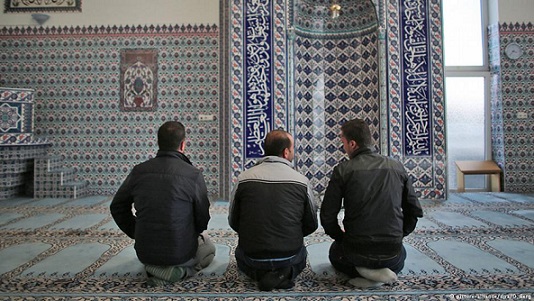DUSSELDORF – Muslim children in Germany have been denied the right to get religious lessons in schools in Germany’s western North Rhine-Westphalia following a state court decision to ban Muslim associations from introducing these lessons, Deutsche Welle reported.
“We regret the decision … because first and foremost it does not offer the undisputed needs of Muslim children in schools in North Rhine-Westphalia any secure prospect for the future,” the Central Council of Muslims in Germany (ZMD) said.
“Once again an important opportunity to jointly create a constitutionally stable model other than the NRW council model, which expires in 2019, has been lost.”
The ZMD statement followed a decision by the higher administrative court in Munster last week to turn down the federation’s bid to get schools in the western state to adopt Islamic religious lessons.
The court ruling was based on the grounds that both ZMD and Islamrat [Islam council], did not fulfill all the criteria of a religious association as defined by the German constitution, and so could not claim the same privileges that the Protestant and Catholic churches have in Germany.
Last week’s decision is the culmination of a 20-year legal battle that appeared to have been set aside by the temporary program solution applied in 2012, which allowed Islamic lessons under NRW state supervision.
The content and form of the program, which runs out in 2019, are determined by an eight-person council made up of representatives of various Islamic organizations as well as the NRW Education Ministry. The council also issues the teaching certificates to applicants.
The Islamrat said the court had missed a chance to send an “important signal to the Muslims in the country and an important step towards providing them a home in Germany.”
The association also criticized the state government’s failure to hear official assessments of its religious authority status, and added that it would continue to “work constructively on the permanent establishment of an Islamic religious class.”

Criticism
Hans Michael Heinig, a professor of church law at the University of Göttingen, said the public discussion about the issue was “bordering on the non-serious.”
“There’s a lot of politics and very little understanding in these debates,” he said.
Heinig said the argument the court used did not cover all the Islamic associations in the region.
Had Germany’s largest association, the Turkish-led DITIB brought in a similar suit, “the court couldn’t have made the same arguments. There’s no doubt that it has the relevant authority,” he said.
The fact that ZMD and Islamrat represent about 45,000 Muslims raised the question whether the two associations can speak for Germany’s Muslims.
“It can only be about the members – the Protestant church in Germany can only speak for members of its church and not for free Protestant communities,” said Heinig. “And the Catholic Church can’t speak for everyone who was baptized.”
Michael Wrase, public law professor at the University of Hildesheim and research fellow at the Berlin Social Science Center, criticized the criteria used by the court due to its incompatibility with Islam’s non-hierarchical structure.
“There is no single Muslim ‘church’ – and, apart from the imams, there is no hierarchy with certain authorities who can decide certain questions of faith.”
Wrase also noted that the exact same court delivered another verdict against a Muslim boy who did not want to attend Catholic mass at a state school last week.
“It’s certainly noticeable that in two cases directly following each other there were two decisions that ran contrary to the integration of Muslims into the German school system,” he said.